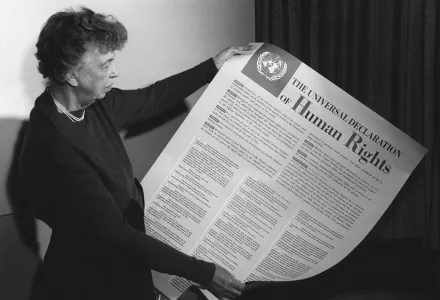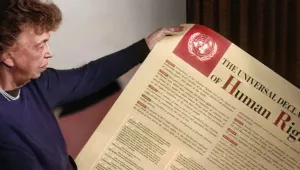On the Rights Trajectory: International Norm Development and the Post-World War II Human Rights Regime
Speakers: Michal Ben-Josef Hirsch, Research Fellow, International Security Program; Jennifer M. Dixon, Associate Professor of Political Science, Villanova University
When does a principled idea become an international norm? And how do international norms change and develop over time and space? Over the past three decades, international norms scholarship has made great advances in our understanding of the nature, causes, and effects of the international normative environment. And yet, it also features a high degree of conceptual idiosyncrasy and lacks a shared conceptual framework for studying norm development. These shortcomings have hampered the accumulation of knowledge in the study of norms and stymied the ability to provide much-needed empirical assessments and methodological tools to assess the origins, trajectory, and current status of international norms. This seminar — which is based on a book manuscript in progress — introduces a conceptual model of norm development and uses a mixed-methods analysis of the development over time of five core international human rights norms: the prescriptive norms of legal accountability; truth-seeking; and reparations and the prohibitive norms against genocide and torture. Combined, the study of these five norms seeks to assess the development and status of the international human rights regime from 1945 to the present.
Open to Harvard ID Holders Only: Admittance will be on a first come–first served basis. Coffee &Tea Provided.



